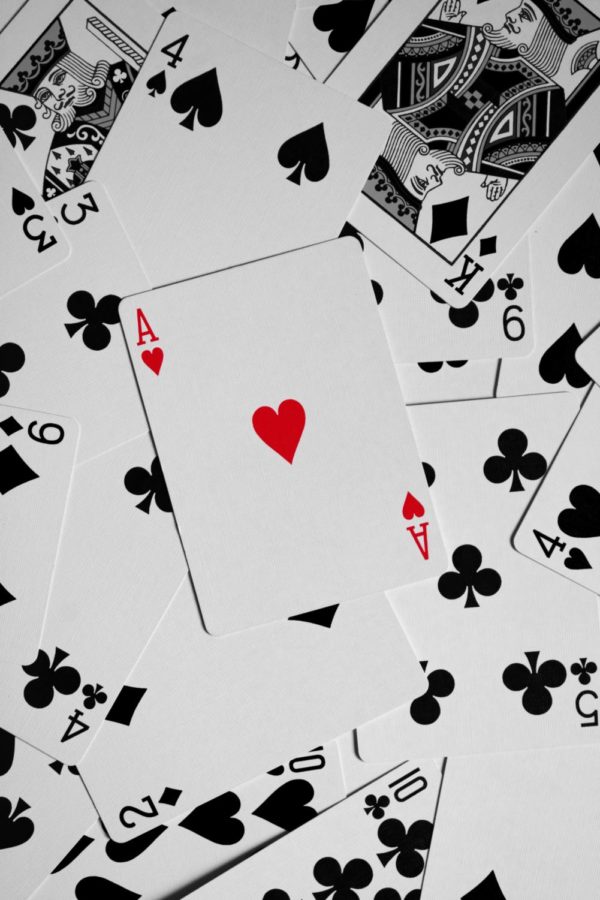Lowering the Regulated Gambling Age to 18?
There are conflicting views regarding lowering the gambling age to 18.
Many card games are played as a form of gambling.
Humans have been gambling for five thousand years, starting out with “stick and knucklebone” games of chance and currently with video poker. Empires, countries, and religions have all tried to prohibit gambling, often to little effect.
Where there’s a will, there’s a way. Throughout history, gambling laws have progressed in terms of regulations and oversight by the government. In fact, for quite a while, any form of gambling was strictly prohibited. France is one such example. In the 1200s, King Louis IX of France prohibited gambling when he ruled for religious reasons. From the 1300s to the 1700s, two Charles, a Henri, and another Louis all reaffirmed the “official” state ban. Eventually, state lotteries for public works sprouted up and unofficial gambling became regulated taxable gambling once the state realized how much profit they were missing out on. Despite this familiar trend of less prohibition and more regulation, gambling laws have regressed in terms of being available to minors. If you were respectable and had the money, and the government turned a blind eye to you because of it, you were able to gamble.
Currently, New York State law stipulates that only those 21 and older are able to gamble with the exception of 18-year-olds and up being able to buy lottery tickets. Although there is a loophole with tribal casinos (casinos owned and operated by Native American tribes) being allowed to lower the gambling age to 18, there are only a handful that d0 this, with the majority of casinos not allowing anyone under the age of 21 to gamble.
However, one must realize that from elementary school raffle tickets to dollar bets in middle school regarding ‘who could touch the backboard,’ many of us have been gambling since we were kids. There are no black and white rules that dictate whether unofficial poker games at your friend’s house or “I dare you” bets are legal or not, so kids do it anyway.
From what I have seen, gambling will always be a human activity, so to bring up the topic of prohibiting any sort of regulated gambling at all is out of the question. However, the question that does arise is, should the age for regulated gambling be lowered to 18?
Shivas Khera, ’22 is against lowering the age for regulated gambling. Khera does not have experience with gambling, but he remembers his statistics teacher bringing gambling up as an example to “show us how the odds aren’t in our favor and how we will more often than not lose money when gambling.” Khera believes that “kids our age love competition and sometimes that competition can be taken too far and in the event of gambling kids can gamble till they lose more than they initially thought they would bet.” Khera cited peer pressure as the main reason behind why the gambling age should not be lowered. Studies have shown that the prefrontal cortex does not develop until your mid-20s which means that teens are more likely to make “irrational decisions.”
Marc Rosenberg ’22 disagrees and is for the lowering of the gambling age. “It’s, in my opinion, one of the defining differences between being a minor and an adult. We as a society have decided that 18 should be the age at which someone is considered an adult, and as an adult, people are expected to be able to make responsible decisions which is essentially what gambling is — a series of responsible decisions.” Lottery tickets are also a form of gambling but in order to maximize profits, the government allows anyone 18 and up to purchase tickets.
The idea of funding gambling rehabilitation programs with tax money from gambling regulation is already in the works. According to the NY State Governor’s Office, in January 2022 when the state of New York first allowed mobile sports wagering to take place within state lines, $2 billion dollars of wagers were placed within a month. Revenue from these wagers was reported at $138 million dollars, and the state’s hefty tax of 51% meant that an extra $70.6 million dollars was contributed to gambling rehabilitation programs, education, youth sports, and property tax relief.
At the end of the day, gambling is a sort of entertainment. In my opinion, there is no difference between spending money on a designer handbag that you are afraid to take out and betting money on a game of poker. If it is what you enjoy, you should be able to do it. If we teenagers are able to spend our money in other ways, what is the problem with regulated gambling? As with any issue, there are pros and there are cons, but with talks of opening a new multibillion-dollar casino within the five boroughs that have contractors and property developers riled up, perhaps the lowering of the gambling age by a non-tribal casino will actually be something that might happen.
From what I have seen, gambling will always be a human activity, so to bring up the topic of prohibiting any sort of regulated gambling at all is out of the question. However, the question that does arise is, should the age for regulated gambling be lowered to 18?
William Wu is a News Editor for ‘The Science Survey’. William enjoys journalistic writing because of the opportunity that it provides for people to...

